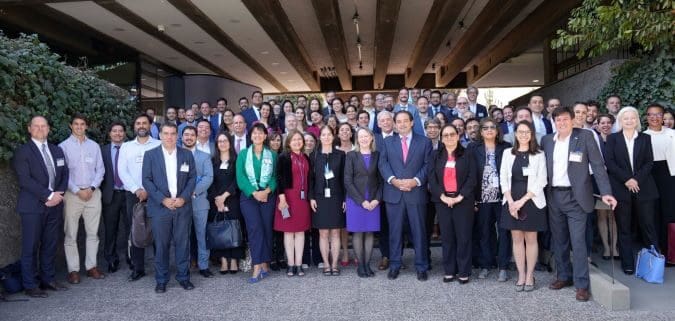Authorities and Experts Call for Accelerating the Energy Transition in Latin America and the Caribbean
Black Immigrant Daily News
Latin America and the Caribbean must urgently make progress on the energy transition, with greater production of renewable energy, universalizing access to energy and increasing energy efficiency, among other measures, according to the authorities and experts gathered yesterday at ECLAC’s headquarters in Santiago, Chile.
The “High-level Expert Workshop for the Special Report on Latin America of the IEA’s World Energy Outlook 2023” is taking place on March 16-17 to gather information on the region’s energy-related needs and opportunities in order to prepare a special report, the WEO-2023 Latin America Energy Outlook, which will be included in the next edition of the annual report prepared by the International Energy Agency (IEA).
The event’s participants include high-level officials from the IEA, ministerial authorities from various countries of the region and experts from international, regional and multilateral organizations such as the Economic Commission for Latin America and the Caribbean (ECLAC), the Latin American Energy Organization (OLADE) and the Inter-American Development Bank (IDB).
The workshop was inaugurated by ECLAC’s Executive Secretary, Jos? Manuel Salazar-Xirinachs, as the gathering’s host, who indicated that the energy transition not only constitutes an alternative for supporting access, energy security and environmental sustainability, but also serves as a driver of productive transformation and of the development pattern in the region.
“The current situation of cascading crises and their effects on Latin America – including increased poverty, a new lost decade in terms of economic growth, high inflation and fiscal restrictions – have exposed the fragility and vulnerability of countries’ energy systems, with negative impacts on energy security, equality and sustainability. These crises have especially affected households in the most vulnerable quintiles, worsening the poverty and inequality situation,” the senior United Nations official underscored.
He recalled that despite progress on electricity coverage in the region (which reaches 97% of the population), there are still 16 million people without access to this vital service and 77 million who do not have access to clean cooking systems. This is compounded by the fragility of countries that depend on imports of fossil fuels (natural gas and oil), which reveals the low level of diversification and renewability in their energy matrix. All of this keeps us far from fulfilling Sustainable Development Goal 7 (“Ensure access to affordable, reliable, sustainable and modern energy for all”), with progress that is insufficient or very slow for achieving the targets on the share of renewable sources and energy efficiency in the region as a whole, he indicated.
“We must redouble work and efforts for accelerating national energy transition processes based on renewables. Even more so when raw materials and human capabilities are widely available in the region and can be harnessed in a sustained way. I am referring to wind, water, the sun, critical minerals, as well as the engineering capabilities and work that add value along the entire production chain,” Salazar-Xirinachs emphasized.
ECLAC refers to the energy transition as a process of sustainable transformation of the energy system that requires a new ecosystem of governance, targeted investment and modern regulatory frameworks, along with the adaptation of institutions and public policies.
The United Nations regional organization proposes five pillars of simultaneous action: 1) Increase renewable energy in the energy matrix; 2) Universalize access to electricity based on renewables and reduce energy poverty; 3) Increase energy efficiency in all sectors; 4) Strengthen regional complementarity, integration and interconnection; and 5) Boost energy security and resilience in the face of external shocks.
“In this very complex energy context for the region, resulting from the war in Ukraine, it is vital to carry out an exhaustive and detailed analysis that would enable exploring energy-related opportunities and challenges in each country, along with the progress made and actions taken in Latin American and Caribbean countries in terms of energy efficiency, clean transportation, sustainable cities and renewable energy, aimed at achieving a fair, sustainable and inclusive energy transition that would truly contribute to the goals of decarbonizing the economy, in line with Paris 2015,” ECLAC’s Executive Secretary concluded.
Donate At Caribbean News Service, we do not charge for our content and we want to keep it that way. We are seeking support from individuals and organisations so we can continue our work & develop CNS further.
NewsAmericasNow.com









Leave a Reply
Want to join the discussion?Feel free to contribute!